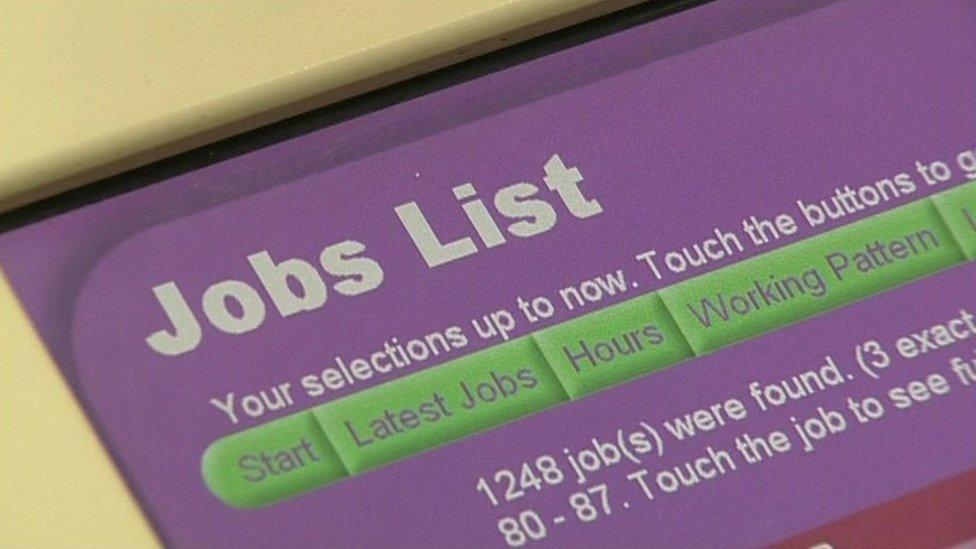Scottish jobs: Something’s amiss
- Published

The latest Scottish job statistics are disappointing, though in the context of a positive jobs picture. The British economy is far from functioning normally, and that will remain the case while interest rates stay locked in the basement, but the labour market has been doing something right.
Job creation across much of the UK has been strong, counteracting the impact of falling public sector employment as the Osborne squeeze is applied.
One of the reasons is that labour productivity growth has remained poor, and pay growth has also been very subdued, so more jobs are being created to fulfil new orders.
On the other hand, the rise in the minimum wage, or what the government likes to call the National Living Wage, is an explicit departure from a minimum wage designed to avoid a rise in unemployment.
It is to be expected that it will harm employment prospects at the lower end of the pay scale, and that may feed through to a further softening in the labour market when the Labour Market Survey catches up with its introduction earlier this month.
Stretching gap
But the first rise in UK unemployment since last summer is of 21,000 more people seeking work between December and February. That is almost exactly the rise in Scotland. In other words, the rest of the UK without Scotland has barely seen a rise in unemployment.
These figures stretch the gap that has opened up between the Scottish and the UK unemployment rates - 6.2% to 5.1%.
The job figures look like they're in tune with recent Scottish government evidence about Gross Domestic Product, with growth also diverging from the UK picture, and from the monthly Purchasing Managers Survey.
This week has also brought further signs of weakening in Scottish retail figures, and not only in the highly competitive grocery sector.
The obvious factor behind the relatively poor results is the downturn in the oil and gas producing sector. As many have noted already, the flipside of cheaper fuel has not made much of an impact on the fuel-guzzling end of the Scottish economy. The best that can be said is that the transport sector has not been in decline.
The relatively poor recent performance of the Scottish economy needs a further explanation, according to economists. It can't all be down to oil and gas.
And what would that be? Maybe Scotland's strengths are in sectors that are suffering more. In exports, for instance, whisky has had a run of three poor years. Perhaps the dampening of confidence that has fed through from uncertainty over Britain's European Union membership is being felt more in Scottish economic activity than elsewhere.

Scotch whisky has had a run of three poor years
And if such constitutional upheaval is a reason for business to pull back on investment and recruitment, does that tell us anything about the continued impact of the debate around Scottish independence?
It is not just that the Scottish government favours that change. It's probably more significant that the electorate has chosen to re-align Scottish politics to a divide along the constitutional fault line. That doesn't come without consequences.
Yet here's the odd bit - with such big challenges in the economy, where is the debate between the parties contesting the Scottish election campaign? There are proposals around raising or not raising tax, and for different spending priorities. But it's harder to make out the big plans for growing the economy and for job creation.